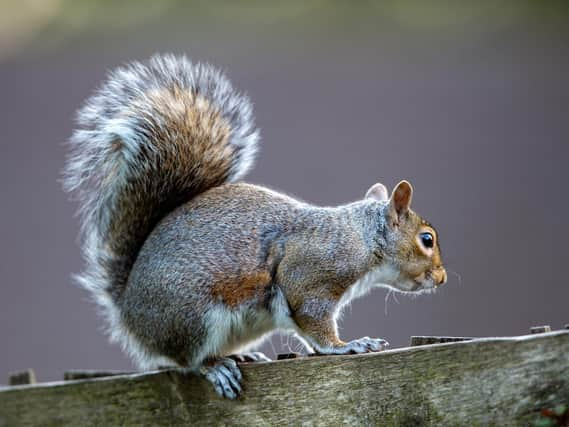Call for increased action on grey squirrel management after lockdown


The British Association for Shooting and Conservation (BASC) has made the call as it said levels of grey squirrel management have dropped as a result of lockdown and volunteers being unable to carry out their vital conservation work.
This in turn, the organisation said, has led to increased levels of damage to trees and poses a direct threat to the future of our native red squirrel.
Advertisement
Hide AdAdvertisement
Hide AdGrey squirrels can cause damage to woodlands by stripping bark from trees to eat and line their dreys. This tends to take place from the end of April to the end of July, with thin barked species such as sycamore, beech and oak among others, most at risk.
The damage caused by the stripping can lead to fungal infections causing the wood to rot or tree deformities which reduce the value of the timber.
The European Squirrel Initiative estimates the damage caused by grey squirrels to the UK forestry industry, when normal control measures are in place, is around £40 million per year.
Ian Danby, head of biodiversity at BASC, said: “The impact of coronavirus restrictions across the UK has curtailed volunteer conservation efforts. With reduced control and the grey squirrel’s habit of stripping bark from April onwards the damage is expected to be significantly worse this year.”
Advertisement
Hide AdAdvertisement
Hide AdAdditionally, he said the lack of control prior to the breeding season will see a wave of dispersing grey squirrels that could devastate the gains that numerous hard-working red squirrel projects have made.
Grey squirrels carry squirrel pox virus which while it does not affect them is fatal to red squirrels and a core strategy of any red squirrel project is keeping them separate from their grey cousins.
Many red squirrel conservation projects rely on trained volunteers to monitor and remove grey squirrels as well as carry out other conservation work in the field.
The initial coronavirus restrictions has effectively halted volunteer activities but, Mr Danby added that as lockdown restrictions have been eased, volunteers in England can restart their efforts.
Advertisement
Hide AdAdvertisement
Hide AdKay Haw, Director of the UK Squirrel Accord said: Effective management of the invasive non-native grey squirrel in the UK is vital to protect important tree species from damage and fatalities through bark stripping, and prevent further loss of surviving red squirrel populations through competition and disease transmission.”
The UK Squirrel Accord is a nationwide partnership of 37 organisations including the DEFRA, the Wildlife Trusts and Red Squirrel Northern England.
Ms Haw said: “The risk assessments and protocols put in place at this time by Red Squirrels Northern England, BASC and others, to safeguard professionals and volunteers carrying out management activities are important for individuals and the public. They are also vital to delivering the key goals of sustainable woodland management, nature conservation and supporting biodiversity across the landscape.”
The UK Squirrel Accord is currently funding a project to convert a proven injected contraceptive for grey squirrels into an oral version.